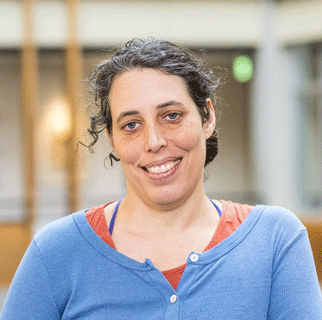My research focuses on accessibility broadly speaking. In doing this work, I emphasize values such as intersectionality, and perspectives such as disability studies. For example, in the domain of Deaf/Hard of Hearing (DHH) technology, I am exploring how people who are multilingual engage with communication technology. Another focus of my work is creating general tools so that anyone can use them, such as 3D printing, knitting, and other fabrication technologies. I have led the effort to better understand both clinical and do-it-yourself (DIY) stakeholders’ use of fabrication technologies, and developed better, more usable tools for production. Together, these can enhance the capabilities and participation of all users in today’s manufacturing revolution.
Affiliations
Richard E. Ladner Professor, Paul G. Allen School of Computer Science & Engineering
Director, Make4all Lab
Research highlights
AI and Accessibility
With the recent rapid rise in Generative Artificial Intelligence (GAI) tools, it is imperative that we understand their impact on people with disabilities, both positive and negative. However, although we know that AI in general poses both risks and opportunities for people with disabilities, little is known specifically about GAI in particular. We are exploring AI’s use by people with disabilities, and its value in addressing a wide variety of problems from text simplification to fabrication.
Better understanding of clinical and DIY accessible technology production
The advent of consumer-grade fabrication technology, most notably low-cost 3D printing, has opened the door to increasing power and participation in do-it-yourself and do-for-others accessible technology production. However, such production faces challenges not only at the level of process and policy, but with respect to materials, design tools, and follow-up. As summarized in a 2019 Communications of The ACM article, Mankoff has led the effort to better understand both clinical and DIY stakeholders in this process, and developed better, more usable tools for production. Together, these can enhance the capabilities and participation of all users in today’s manufacturing revolution.
Related news
- Blind and Low Vision Teens Join CREATE through YES2 Summer Internships
- GAAD Day 2025 Interview with CREATE Director Jennifer Mankoff
- CREATE researchers find ChatGPT biased against resumes that imply disability, models improvement
- Alice Wong and Patty Berne: Two UW lectures moderated by CREATE researchers
- UW News: Can AI help boost accessibility? CREATE researchers tested it for themselves
